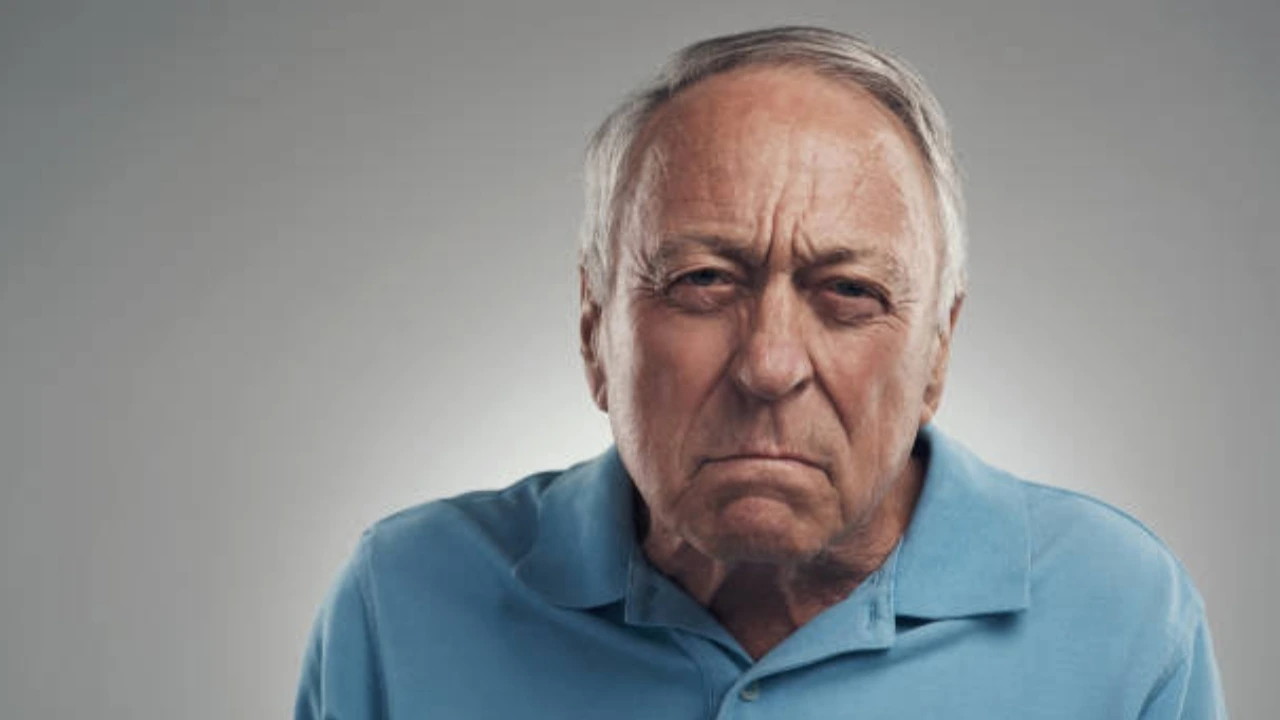Andropause or male menopause is a collection of symptoms that arise due to decreased testosterone levels when men age. Symptoms that occur can include decreased sexual desire, difficulty sleeping, and mood swings.
The testosterone hormone plays a role in sperm formation, sexual arousal (libido), changes in sexual characteristics during puberty, and muscle mass formation in men. As we age, testosterone levels will gradually decrease, which is about 1% each year, which usually begins at age 40.
Unlike menopause, which is a natural part of the aging process in women, andropause is not always experienced by older men. Menopause occurs when women enter the age of 50–55 years. This condition causes women to no longer experience fertile periods (ovulation) and menstruation so they cannot get pregnant.
Meanwhile, the decline in testosterone levels in men occurs slowly, but is not completely exhausted. In addition, elderly men can still produce healthy sperm cells.
Causes of Andropause
As mentioned, the cause of andropause is a decrease in testosterone levels or what is called hypogonadism. Hypogonadism generally occurs later in life due to obesity, uncontrolled diabetes, unhealthy lifestyles, and smoking and alcohol consumption.
In rare cases, hypogonadism can also occur from birth, for example in people with Klinefelter syndrome, as well as abnormal position or absence of testicles in the womb (cryptorchidism).
Andropause Symptoms
Andropause symptoms generally worsen with age. Andropause complaints that arise include:
- Easily tired
- Self-confidence decreases
- Difficulty concentrating and experiencing memory loss
- Mood changes, such as often being sad or easily angered
- Increased body fat mass
- Sleep disorders
- Loss of muscle mass
- Gynecomastia, which is the enlargement of the mammary glands in men
- Osteoporosis or brittle bones
- Erectile dysfunction
- Decreased sexual desire
- Reduced hair on face and body
- Testicles shrink
- Fertility disorders
- Sweating at night
- A hot sensation in the body that appears suddenly
When to see a doctor
See a doctor if you experience very disturbing andropause symptoms, especially if you suffer from obesity, type 2 diabetes, or hypertension. Medical help needs to be given immediately if andropause affects the quality of the relationship with your partner and causes severe stress.
Diagnosis of Andropause
The doctor will ask questions about the symptoms experienced by the patient, followed by a physical and psychological examination. Furthermore, the doctor may suggest the patient to undergo supporting examinations, such as:
- Blood tests, to check the level of testosterone and other hormones, as well as blood sugar levels
- Testicular ultrasound, to see the size of the testicles
Andropause Treatment
The first treatment for andropause is improving lifestyle and diet. Efforts that can be done include:
- Eating healthy, nutritious and balanced food
- Exercise regularly
- Get enough rest and sleep
- Managing stress well
- Quit smoking
If there are symptoms of depression, the doctor will provide psychological therapy in the form of cognitive behavioral therapy, counseling, and antidepressant medication .
For patients with diabetes, doctors will prescribe antidiabetic drugs. Doctors can also advise patients to follow a certain diet, such as eating foods that are rich in fiber and low in sugar and fat. In addition, patients also need to undergo regular check-ups.
Please note, testosterone hormone therapy is not recommended for treating andropause because it can increase the risk of prostate cancer, breast cancer in men, heart attacks, and strokes.
Andropause Complications
If not handled properly, andropause can cause the following complications:
- Decreased quality of life
- Decreased quality of sexual relations
- Insomnia
- Major depression
Andropause Prevention
The decrease in testosterone levels is part of the aging process in men and cannot be avoided. However, there are efforts that can be made to prevent andropause symptoms from getting worse, namely:
- Implement a healthy, nutritious and balanced diet.
- Lose weight if you are obese.
- Do at least 30 minutes of exercise every day.
- Maintain ideal body weight according to body mass index.
- Do not smoke.
- Avoid consuming alcoholic beverages.
- Manage stress well.
- Make sure to get enough rest.
- Take regular medication if you suffer from diabetes and hypertension.
References :
Zitzmann, M. (2020). Testosterone, Mood, Behaviour and Quality Of Life. Andrology, 8(6), pp. 1598–1605.
Rodprasert, W., et al. (2019). Hypogonadism and Cryptorchidism. Frontiers in Endocrinology, 10, pp. 906.
National Health Service UK (2022). Health A to Z. The 'Male Menopause'.
National Institute of Health (2022). MedlinePlus. Aging Changes In The Male Reproductive System.
Cleveland Clinic (2022). Articles. Testosterone.
Cleveland Clinic (2022). Disease & Conditions. Low Testosterone (Male Hypogonadism).
Cleveland Clinic (2020). Disease & Conditions. Sexual Dysfunction.
Mayo Clinic (2022). Healthy Lifestyle. Male Menopause: Myth or Reality?
Everyday Health (2023). What Is Hypogonadism? Symptoms, Causes, Diagnosis, Treatment, and Prevention.
Healthline (2021). Testicular Ultrasound.
Healthline (2019). Low Testosterone in Men.
Healthline (2018). What Is Male Menopause?
Medscape (2022). Klinefelter Syndrome.
Patient Info (2022). Diabetes and Hypertension.
Verywell Health (2023). Male Menopause: Overview and More.
Verywell Health (2023). Type 2 Diabetes Treatment.
WebMD (2021). Male "Menopause".

